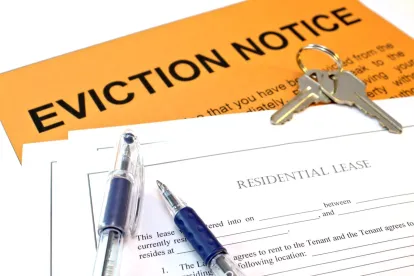The recent extension of the eviction moratorium, first begun as a response to the COVID-19 pandemic in 2020 and renewed by the Center for Disease Control and Prevention (CDC) on August 3, has thrust the topic of squatters rights back in the spotlight.
Landlord-tenant law has already been contentious for years. Still, the threat of an eviction crisis caused by rampant unemployment and economic turbulence due to COVID-19 has made it an especially crucial subject to navigate. The Biden Administration’s latest effort to curb the growing wave of evictions around the country represents one significant response to the issue.
While renters around the country greeted the moratorium with jubilation, many in the legal community have raised serious concerns about the order’s legality and long-term effects. Additionally, due to the pause on evictions, many landlords have grown concerned over a perceived rise in squatters.
Aside from all the uproar and debate, though, what exactly does the moratorium entail for renters? What is its legal standing? And how does it connect to squatter’s rights? Here’s how these questions intersect, showing what you need to know about squatter’s rights and the eviction moratorium.
What are squatters' rights?
In simplest terms, Squatter’s Rights refers to the legal right for an individual to use property that they do not own so long as the property’s true owner does not evict them. There can be additional stipulations and limitations to squatter’s rights in certain areas beyond this universal definition, but they vary on a state-by-state basis.
Although the act of squatting is a controversial topic around the country and even illegal in some states, there are ways that squatters can significantly benefit from the act. Through a process called “adverse possession,” squatters can come to own the property itself if they live on it for long enough. Once again, the criteria for adverse possession vary between each region. In New York, for example, a squatter must live on a property for ten years before adverse possession takes effect, while California only requires five years of residency.
How does the eviction moratorium protect renters?
Like previous eviction moratoriums issued over the past year, this extension prevents renters from being evicted due to a failure to pay rent or late fees. After the last eviction pause expired on July 31, nationwide activism and political pressure led the CDC and the White House to introduce a new moratorium extension in early August, with a new expiration date of October 3.
Unlike the previous bans, however, this version of the moratorium is more limited in scope. According to the CDC, it only applies to renters living in areas where COVID-19 has a “high rate of transmission.” While this may sound more limited than before, the recent surge of the Delta variant means that 80% of counties in the United States fall under the “high transmission” category. Furthermore, 90% of the country’s at-risk renters live in such counties, meaning that the vast majority of people who need this latest round of assistance will be eligible for it.
However, this extension comes with one final limitation: since this eviction ban is tied to public health specifically, it is no longer in effect after the rate of COVID-19 infection falls below a high-risk level. Depending on how quickly local COVID cases rise or fall, the moratorium could end well before October 3. Even if it does not last long, though, the main benefit of the suspension is that it buys extra time for renters to claim 46 billion in government aid that is gradually being distributed to at-risk renters.
How are lawyers reacting to the moratorium?
While renters have reacted to the new moratorium with widespread celebration, the reception from the legal community has been considerably less enthusiastic. Some lawyers have joined in with tenants to celebrate the renewed reprieve from evictions, but others have raised concerns about its total legality. In the views of many legal commentators, unilaterally extending evictions without getting formal approval through legislation from Congress represents an unconstitutional extension of executive power.
Even the country’s highest legal authorities have raised issues with the moratorium. While approving the second extension of the eviction moratorium to July 31, Justice Brett Kavanaugh originally ruled that “clear and specific congressional authorization (via new legislation) would be necessary for the CDC to extend the moratorium.” The lack of these prerequisites in the latest renewal of the eviction ban has spurred many lawyers to oppose the measure’s legality. President Biden himself has noted that the extension is potentially unconstitutional.
In addition, other lawyers have noted that the moratorium compromises the legal rights of landlords to their income. A group of lawyers working on behalf of landlords has already requested for a federal judge to block the order only a day after the extension was announced, showing the sheer amount of opposition that exists.
How does the eviction moratorium affect squatters' rights?
More than a year of rent deferrals and eviction moratoriums has significantly raised interest in the topic of squatters rights. Since squatters maintain the legal right to reside on a property so long as the landowner does not evict them, the widespread prevention of evictions has posed new questions in an already controversial topic. The moratorium has made it appear more difficult, if not often outright impossible, for landlords to remove squatters from their property.
However, landlords still reserve the right to remove people unlawfully residing on their property. According to the order itself, the moratorium specifically applies to two kinds of evictions: failure to pay rent and failure to pay late fees. Tenants can still be evicted for other less common reasons, such as engaging in dangerous or illegal activity on-premises, endangering public health and safety, or violating local regulations – such as by squatting, in some cases.
Considering all this, the eviction moratorium has one primary effect on squatters' rights: attention. It might not change the law, but the widespread ban on evictions has made it more common than ever for a tenant to live on a property without paying rent – an act traditionally reserved for squatters. The newfound spotlight on this topic may spur new regulations in the future that limit how often tenants can reside in a location debt-free.
Takeaway
The eviction moratorium is meant to be a lifeline for renters struggling to pay for their housing. Many lawyers, however, have noted that the most recent extension bears numerous legal issues, meaning that its future is currently uncertain. No matter its future, though, the eviction moratorium has made the idea of squatters' rights a central issue in the landlord-tenant landscape.




 />i
/>i

